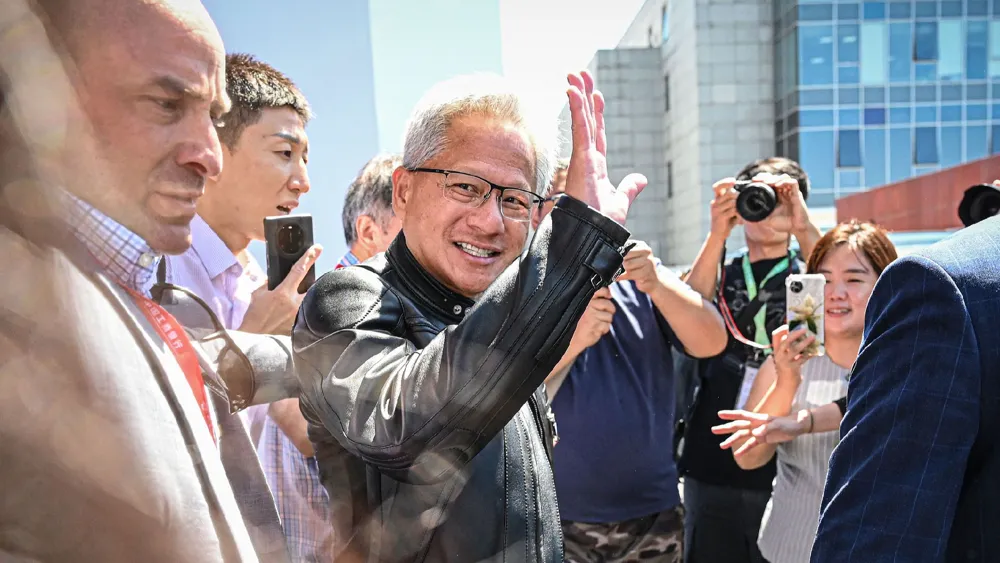Chips Industry Reflects U.S. Export Concerns and Innovation

Recent media coverage reflects a significant shift in U.S.-China relations, particularly following the tech giant Nvidia's announcement that it has received approval from the U.S. government to sell H20 computer chips to China. This decision reverses the restrictions imposed by the Trump administration, which had previously banned such sales.
This policy change coincided with Nvidia CEO Jensen Huang's visit to China, where he confirmed that the company would also release a new chip, the RTX Pro GPU, for Chinese consumers. The market responded favorably to these developments, with positive reactions across various sectors.
However, the response from certain U.S. media outlets has been mixed. For instance, Vox claimed that this move provides China with a critical advantage in the realm of artificial intelligence, suggesting that allowing H20 exports could diminish the U.S.'s technological edge.
CNBC took a slightly different approach, citing U.S. Commerce Secretary Howard Lutnick, who remarked that China would only receive what he termed as Nvidia's '4th best' AI chip. This portrayal illuminates a persistent narrative in some U.S. media that often casts China in a negative light, regardless of the situation.
Furthermore, according to the New York Times, the lifting of the ban was influenced by vigorous lobbying efforts from Huang. The article noted that the prior ban had incited concerns over China's potential to emerge as a leading player in chip manufacturing.
This brings to the forefront the fundamental biases present within parts of the U.S. media. Questions arise as to why there is a perception among some that the trade of chips symbolizes a zero-sum conflict between the U.S. and China, even when China has consistently articulated a preference for cooperative engagement.
The underlying factors contributing to these attitudes include an outdated mindset prevalent among certain U.S. politicians. This mindset intertwines Cold War thinking with a zero-sum game perspective and the perception of a 'China threat,' leading to fears that engagement in the technology sector could jeopardize U.S. interests.
However, the U.S. administration also appears to recognize the repercussions of severing all trade ties with China, given the latter's lucrative market. This duality is evident in the U.S. government's inconsistent approach to engaging with Chinese businesses.
A concerning new narrative has emerged in the U.S.—characterizing the nation as a 'victim' of international trade. This perspective can foster trade protectionism and contribute to rising xenophobia, which poses risks to collaborative efforts and global economic integration.
Nvidia's financial report further illustrates the importance of the Chinese market, which constituted approximately 13 percent of the company's revenue. Huang himself has pointed out that neglecting business opportunities in China would ultimately harm U.S. tech companies.
Harvard professor Graham Allison has characterized the competition between the U.S. and China as akin to the 'geopolitical Olympics,' spanning multiple sectors. In contrast, Chinese Ambassador to the U.S., Xie Feng, emphasized that competition should focus on excellence rather than conflict, advocating for a prioritization of cooperation alongside competition.
In sum, the conflicting narratives observed in U.S. media encapsulate a broader disconnect between the perspectives of politicians and businesses regarding engagement with China. Nvidia's recent policy shift exemplifies a growing recognition that the two largest economies are inextricably linked, despite the ongoing debates on trade practices.
Read These Next

UK Investigates Apple and Google Tech Regulations
This article examines the implications of the UK's CMA investigation into Apple's and Google's market dominance, exploring the concept of duopoly in mobile technology and its impact on competition and consumer choice.

Moths Detect Ultrasonic Sounds Emitted by Tomato Plants
Israeli researchers found female moths use ultrasonic sounds from tomato plants to decide egg-laying sites, revealing ecosystem complexity.

Co-op Cyber-Attack: A Wake-Up for Data Protection
This article explores the impact and implications of the Co-op cyber-attack, emphasizing the need for stronger data protection measures in an increasingly digital landscape, and discusses potential steps consumers and businesses can take to enhance cybersecurity.
